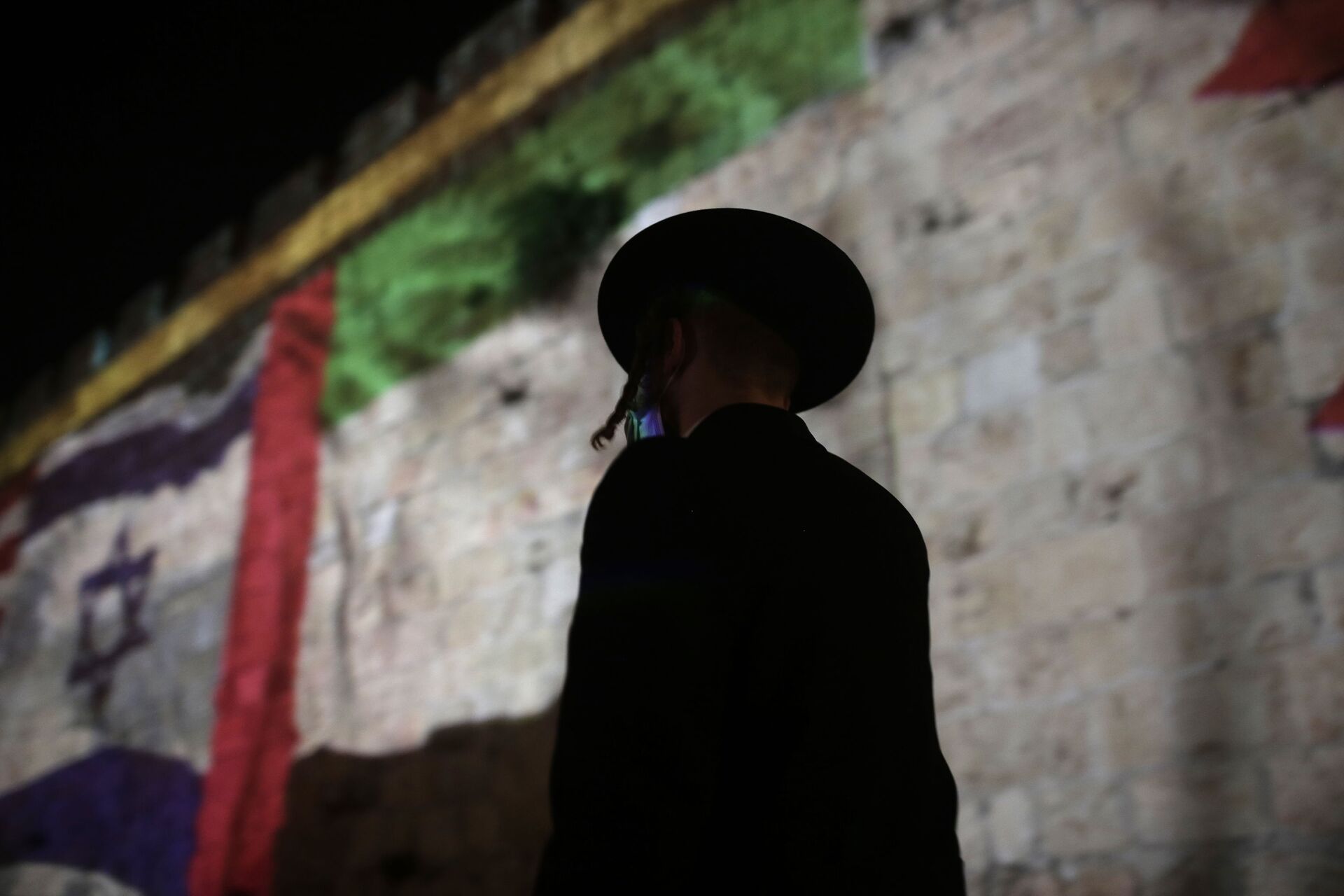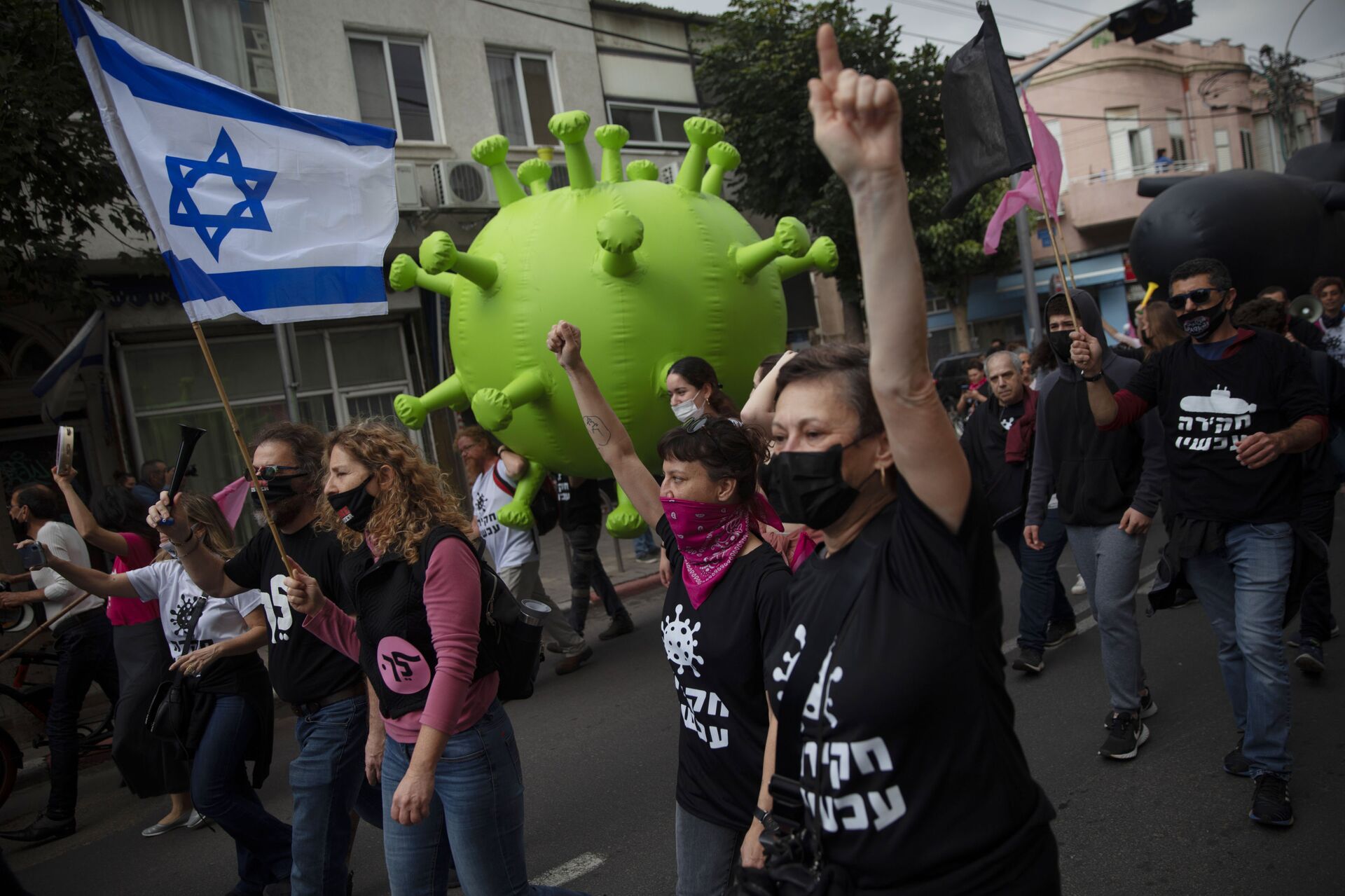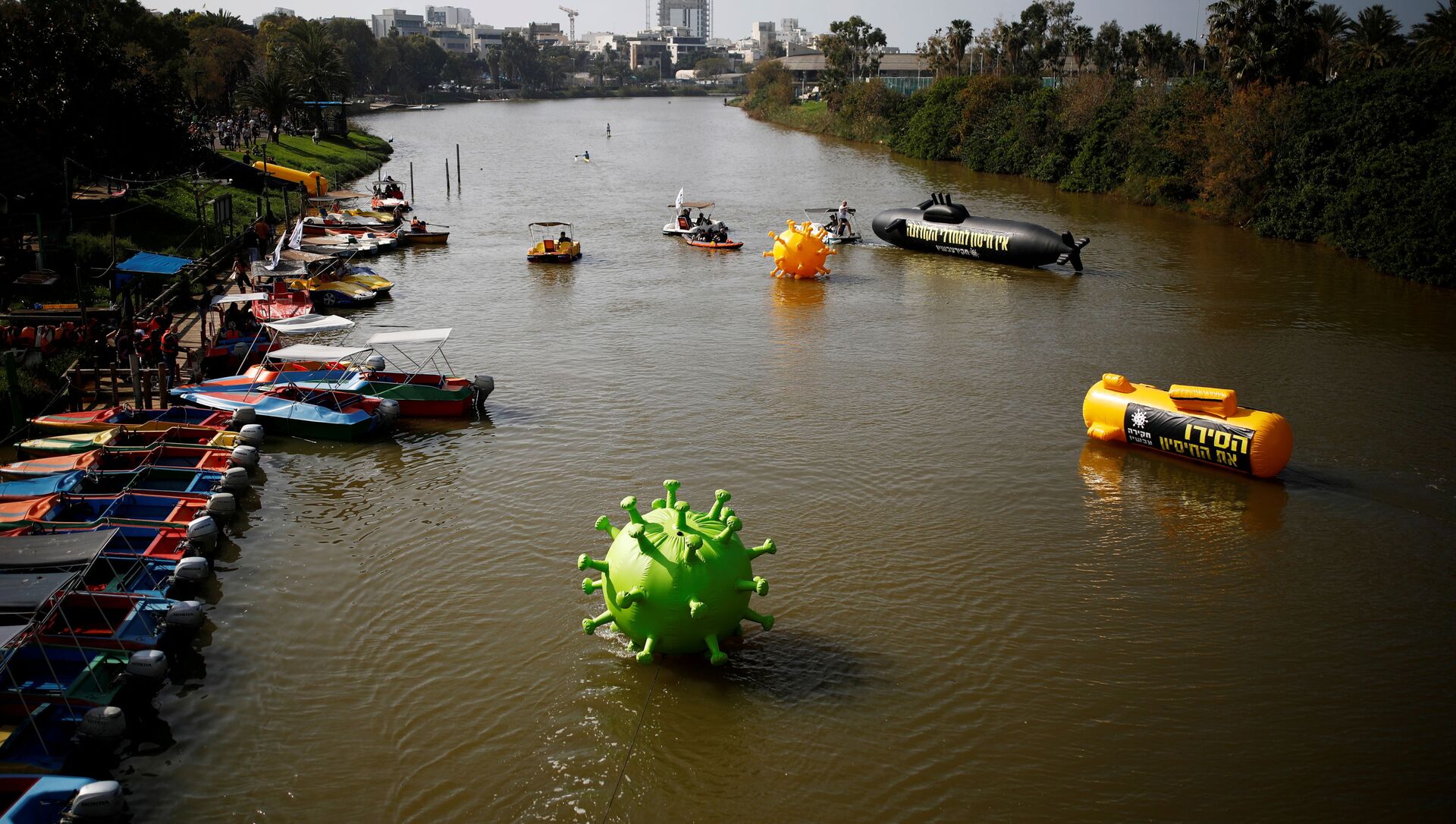It's been a year since Israel discovered its first coronavirus case, after an Israeli tourist came back from a trip to Italy, where he reportedly contracted the virus.
But even before that first case was spotted, Israeli authorities were quick to implement a number of restrictive measures that initially raised eyebrows in Israel and the international community.
At the end of January, Israel's largest airline El Al announced it would cancel all of its trips to and from China. Later on, a similar measure was implemented for other Asian countries and then it was expanded to several European destinations too, including Italy.

Foreigners were asked to leave the country, tourists were not allowed in, and those Israelis who found themselves stuck abroad and who eventually managed to come back, were forced to quarantine themselves for 14 days.
First, But Not Last
Despite those efforts, one month after the discovery of the first coronavirus case, Israel found itself locking down the country.
All shopping centres were closed, so were public and government offices, theatres, schools, national parks, mosques, and synagogues. Transportation was limited and Israelis could not exceed a 1,000-metre radius from their homes.
Those measures eventually bore fruit and almost two months down the line, Israel managed to reduce the number of coronavirus cases, receiving kudos from the international community on its quick response and ability to handle the situation. But domestically, that lockdown was harshly criticised, primarily because it pushed up unemployment levels to unprecedented heights, something that played a pivotal role in the decision to open up the country.
That, however, turned out to be a hasty decision. At the end of June, a month after opening up, the numbers started rising again.
That surge was partially explained by many Israelis not bothering to adhere to the regulations set by the government, nor did they care to maintain social distancing or wear masks. Another reason for the spike was attributed to mass funerals and weddings continuing to be held, especially in Arab and Ultra-Orthodox communities, and so were illegal parties and prayers.

By mid-September that non-compliance with basic rules fired back and when the number of new daily cases exceeded 3,000, Israeli authorities announced yet another lockdown.
For Israelis that was a feeling of deja vu. Once again public and private offices were closed, educational institutions shut down, and restrictions on movement were implemented, eventually bringing the alarming numbers down. But not for too long.
At the time, Israeli media outlets reported that many residents continued to breach the regulations set by the government, partially because they were tired of the mess and partially because they were upset with the authorities' inconsistent decisions.
Meanwhile, the police and other security forces were struggling to enforce those measures and the result was that Israel went into lockdown yet again, the nation's third in under a year.
Light at the End of the Tunnel?
Now with the arrival of the Pfizer vaccine and with more than a third of Israel's nine million people fully vaccinated, authorities are hopeful that a fourth lockdown can be avoided.
They are also hoping that a new drug, EXO-CD24 developed by Israel's Ichilov hospital that fights the cytokine storm caused by the virus, will prove efficient. This might dramatically reduce the number of severe patients or those in critical condition and might signify a breakthrough in the way the world handles the pandemic.

Yet there are also some reservations. It was recently reported that Israel has registered a 50 percent drop in the amount of people seeking to be inoculated. This is despite several variants of the coronavirus being found in Israel, posing an additional threat to the country's residents.
With the Jewish holiday of Passover only one month away, these findings are alarming, specifically because Israelis tend to gather for a festive dinner with family and friends, something that could push the currently relatively low cases up.
And while authorities are now calling on all Israeli citizens to get vaccinated and keep adhering to social distancing and the wearing of masks, the fear is that the pandemic that has already claimed the lives of more than 5,700 people is far from being over.


